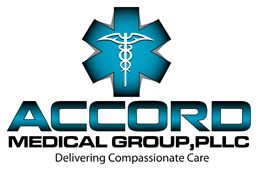Sleep Deprivation
Introduction
Anatomy
In a way, your body goes on “auto-pilot” while you sleep. Your brain regulates automatic functions for you, such as breathing, heart rate, and blood pressure. The average adult needs about eight hours of healthy sleep. Although sleep is a complex process that is not fully understood, it is known that a good night’s sleep is important for optimal health and functioning.
Causes
There are many causes of sleep deprivation. Your lifestyle can influence how much sleep you get and the quality of your sleep. Parents of a new baby, students studying for exams, or people traveling across time zones may be susceptible to temporary sleep deprivation. Shift workers are vulnerable to ongoing sleep deprivation.
Medical conditions, such as chronic pain or asthma, and certain medications can impair sleep. People with untreated sleep disorders, such as sleep apnea, restless legs syndrome, or insomnia, can experience sleep deprivation. Women may experience sleep deprivation because of hormone fluctuations that occur with premenstrual syndrome, pregnancy, perimenopause, and menopause.
Symptoms
Diagnosis
Treatment
Prevention
Am I at Risk
There are many risk factors that can disrupt sleep and cause sleep deprivation. Some of the more common ones are listed below:
_____ Alcoholism and substance abuse increases the risk of sleep problems.
_____ Older adults may experience insomnia with increasing age.
_____ Anxiety, depression, grief, post-traumatic stress disorder, and stress can cause insomnia and contribute to sleep deprivation.
_____ Shift work is a risk factor for sleep deprivation.
_____ Jet lag is a risk factor for sleep deprivation.
_____ People that are not exposed to enough sunlight or bright light may develop insomnia.
_____ Sleeping disorders, such as restless legs syndrome, can contribute to sleep deprivation.
_____ Some medical conditions, such as an overactive thyroid, arthritis, enlarged prostate, heart disease, lung disease, and heartburn, can contribute to insomnia and lead to sleep deprivation.
_____ Cigarettes, tobacco products, and caffeine products such as coffee, soda pop, and chocolate, are stimulants and increase the risk of insomnia.
_____ Hormonal changes during pregnancy, perimenopause, menopause, or in the days before menstruation begins can cause insomnia.
_____ Sleeping during the day can cause insomnia at night.
_____ Too much activity or excitement before bedtime, irregular bedtime routines, and lack of a bedroom just for sleep are risk factors for insomnia. It is suggested that televisions, computers, and video games be removed from bedrooms to help reduce stimulating the brain before sleep.
_____ Some over-the-counter medications and prescription medications increase the risk of insomnia. It is helpful to make a list of all of the prescription and nonprescription medications that you take for your doctor’s review. If necessary, your doctor may be able to substitute another similar medication that does not contribute to insomnia.
_____ Nightmares or night terrors may interrupt sleep and increase the risk of insomnia.
_____ Students that stay awake at night studying for exams may experience temporary sleep deprivation.
_____ Parents of a new baby may experience interrupted sleep until the baby is able to sleep through the night.
Complications
Sleep deprivation can be debilitating. It can interfere with employment pursuits, relationships, and daily activities. Daytime sleepiness can be dangerous. You should not drive or operate machinery when you feel tired. Further, people with ongoing sleep deprivation are at risk for developing serious medical conditions, such as high blood pressure, heart disease, and even death.Advancements

Copyright © - iHealthSpot Interactive - www.iHealthSpot.com
This information is intended for educational and informational purposes only. It should not be used in place of an individual consultation or examination or replace the advice of your health care professional and should not be relied upon to determine diagnosis or course of treatment.
The iHealthSpot patient education library was written collaboratively by the iHealthSpot editorial team which includes Senior Medical Authors Dr. Mary Car-Blanchard, OTD/OTR/L and Valerie K. Clark, and the following editorial advisors: Steve Meadows, MD, Ernie F. Soto, DDS, Ronald J. Glatzer, MD, Jonathan Rosenberg, MD, Christopher M. Nolte, MD, David Applebaum, MD, Jonathan M. Tarrash, MD, and Paula Soto, RN/BSN. This content complies with the HONcode standard for trustworthy health information. The library commenced development on September 1, 2005 with the latest update/addition on February 16, 2022. For information on iHealthSpot’s other services including medical website design, visit www.iHealthSpot.com.

